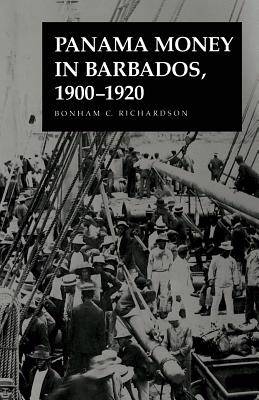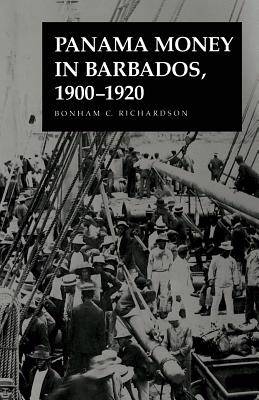
- Afhalen na 1 uur in een winkel met voorraad
- Gratis thuislevering in België
- Ruim aanbod met 7 miljoen producten
- Afhalen na 1 uur in een winkel met voorraad
- Gratis thuislevering in België
- Ruim aanbod met 7 miljoen producten
Omschrijving
On January 18, 1905, hundreds of black men left Barbados aboard a steamer for panama. They were the first Barbadian contract workers dispatched to dog the Panama Canal. In the next decade, 45,000 Barbadian men and women - one-quarter of the islands human population - traveled to the isthmus. They sent home and brought back to Barbados funds in excess of 1 million. The surge of money created irrevocable social changes on Barbados, undermining elements of the island's antiquated sugar economy. In a broad sense, the era of "Panama money" represented a cultural watershed between the island's quasi-feudal past and the modern Barbados of today.
In analyzing the changes created by Panama money on Barbados, Bonham Richardson combines oral history into an important contribution to Caribbean social history. He presents his study from the vantage point of the Barbadian working people and shows that the creation of the Panama Canal, conventionally viewed as a U.S. technological triumph, was of momentous social significance for the Afro-Caribbean laborers who built it.
Specificaties
Betrokkenen
- Auteur(s):
- Uitgeverij:
Inhoud
- Aantal bladzijden:
- 308
- Taal:
- Engels
Eigenschappen
- Productcode (EAN):
- 9781572333062
- Verschijningsdatum:
- 1/05/2004
- Uitvoering:
- Paperback
- Formaat:
- Trade paperback (VS)
- Afmetingen:
- 140 mm x 217 mm
- Gewicht:
- 385 g

Alleen bij Standaard Boekhandel
Beoordelingen
We publiceren alleen reviews die voldoen aan de voorwaarden voor reviews. Bekijk onze voorwaarden voor reviews.












